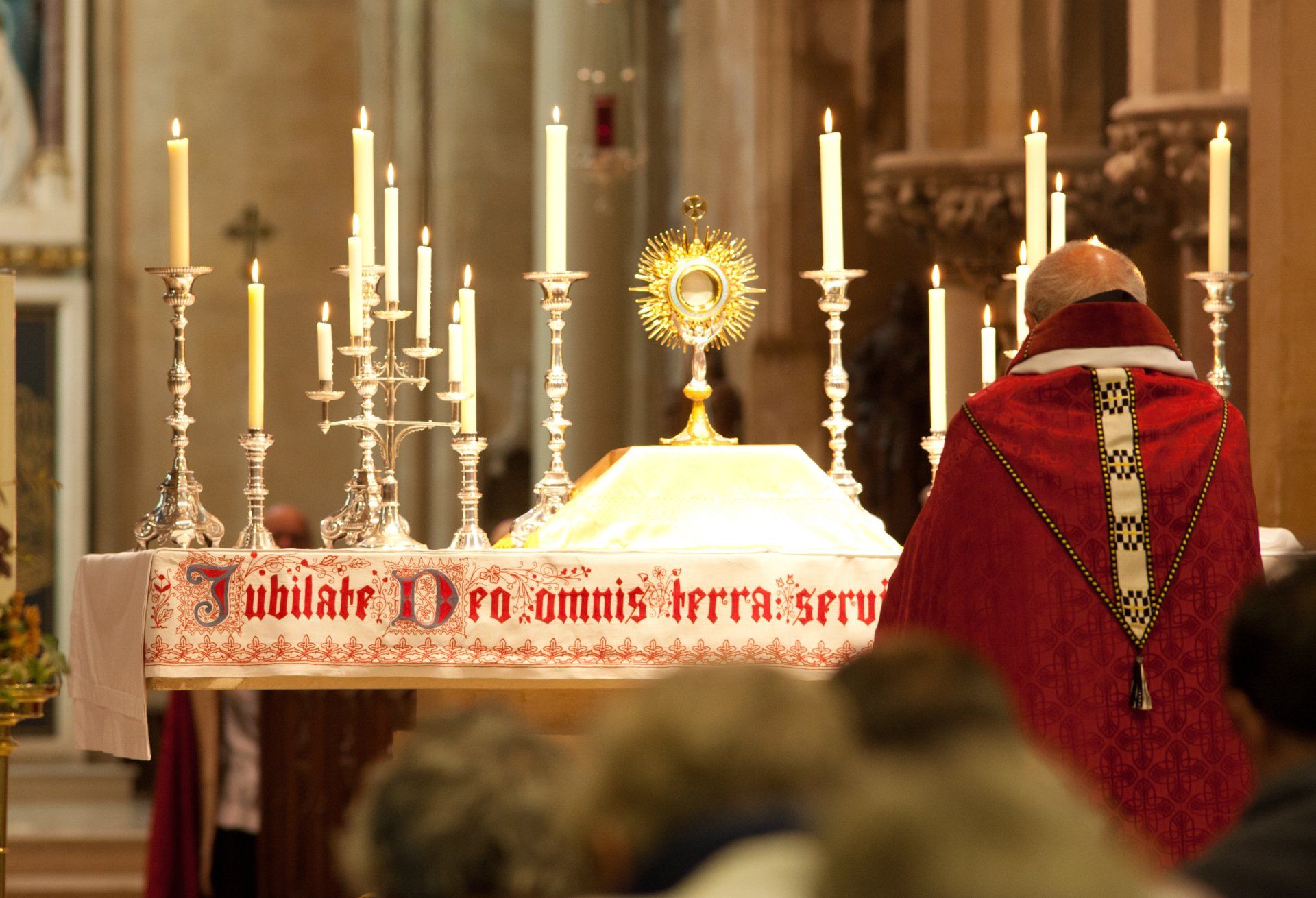Message of Abbot Paul - Sunday 8th August
Message from Fr Paul for Sunday, 8th August 2021
This Sunday we continue our reading of the sixth chapter of John’s Gospel, (Jn 6: 41-51). Sadly, as next Sunday we keep the Solemnity of the Assumption of Our Lady, we will not be reading the conclusion of the chapter, which is a pity. Might I suggest, then, that you read it in the course of the next few days, either directly from your Bible or in your Missal (Sunday, Week 20, Year B)? So, to return to the Discourse on the Bread of Life, one of the key discourses of Jesus found in John’s Gospel.
“The Jews were complaining to each other about Jesus, because he had said, ‘I am the bread that came down from heaven.’ ‘Surely this is Jesus son of Joseph’ they said. ‘We know his father and mother. How can he now say, “I have come down from heaven”?’ Jesus said in reply, ‘Stop complaining to each other.” I hasten to make clear that John was not antisemitic in any way, after all, Jesus and his disciples and the first Christians were all Jews, many of them Pharisees. In John, “the Jews” is often used as a technical term to refer to those who are antagonistic towards Jesus or misunderstand him, in particular the religious authorities of his day.
As far as they are concerned, they know his parents, so how can he say that he has come down from heaven? This, however, is an interruption to what Jesus is saying.
“No one can come to me
unless he is drawn by the Father who sent me,
and I will raise him up at the last day.”
If we come to Jesus, drawn by the Father, then we will find eternal life in him and he will raise us up on the Last Day.
“Not that anybody has seen the Father,
except the one who comes from God:
he has seen the Father.
I tell you most solemnly,
everybody who believes has eternal life.”
Jesus alone has seen the Father, for it is God who sends him into the world. To accept Jesus as the incarnate Word of God, as Son of the Father, Messiah and Saviour and to have faith in him is already to be given and to enjoy eternal life. This life begins here and now and not after death. To live in Christ is to enjoy communion with the Father in the Spirit now. That is eternal life.
“I am the bread of life.
Your fathers ate the manna in the desert
and they are dead;
but this is the bread that comes down from heaven,
so that a man may eat it and not die.
I am the living bread which has come down from heaven.
Anyone who eats this bread will live for ever;
and the bread that I shall give is my flesh,
for the life of the world.”
I am the Bread of Life: I am the Living Bread. His listeners must have been confused, including the disciples, for they could not imagine bread as a metaphor but simply as a basic food. How is he going to feed us? The answer comes at the very end when Jesus says that the bread with which he will feed us is no ordinary bread, but his own flesh. Most of his hearers will take exception to this. It is unacceptable talk. Ordinary bread, as in the multiplication of the bread and fish, is one thing, but to eat the flesh of another human being is going beyond the bounds of acceptability and credibility. His hearers are about to walk away. The Twelve linger, not knowing what to do. Jesus asks them, “And you, will you abandon me too?” Peter replies in the name of all those who believe, “Lord, to whom shall we go? You have the message of eternal life.” What are we going to do? Who else is there but Jesus, who can guarantee us the gift of eternal life? But we have a choice. We can walk away.










